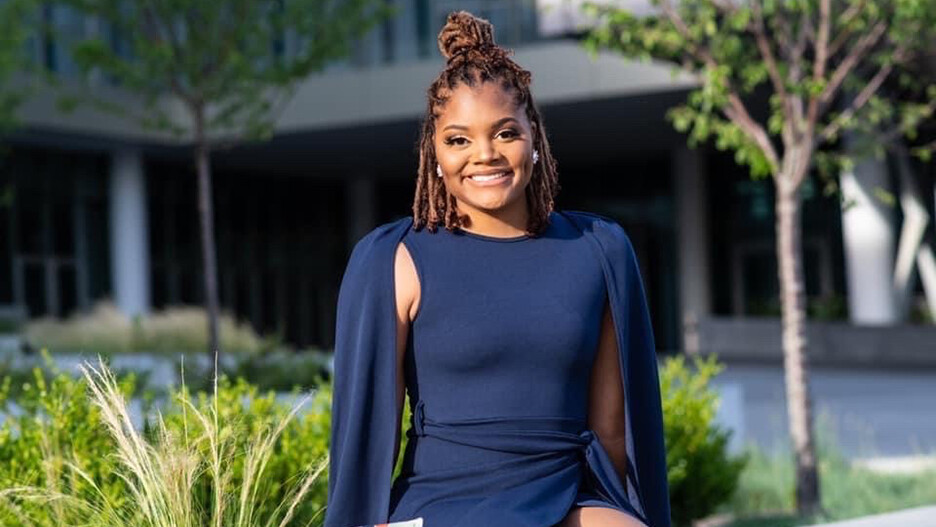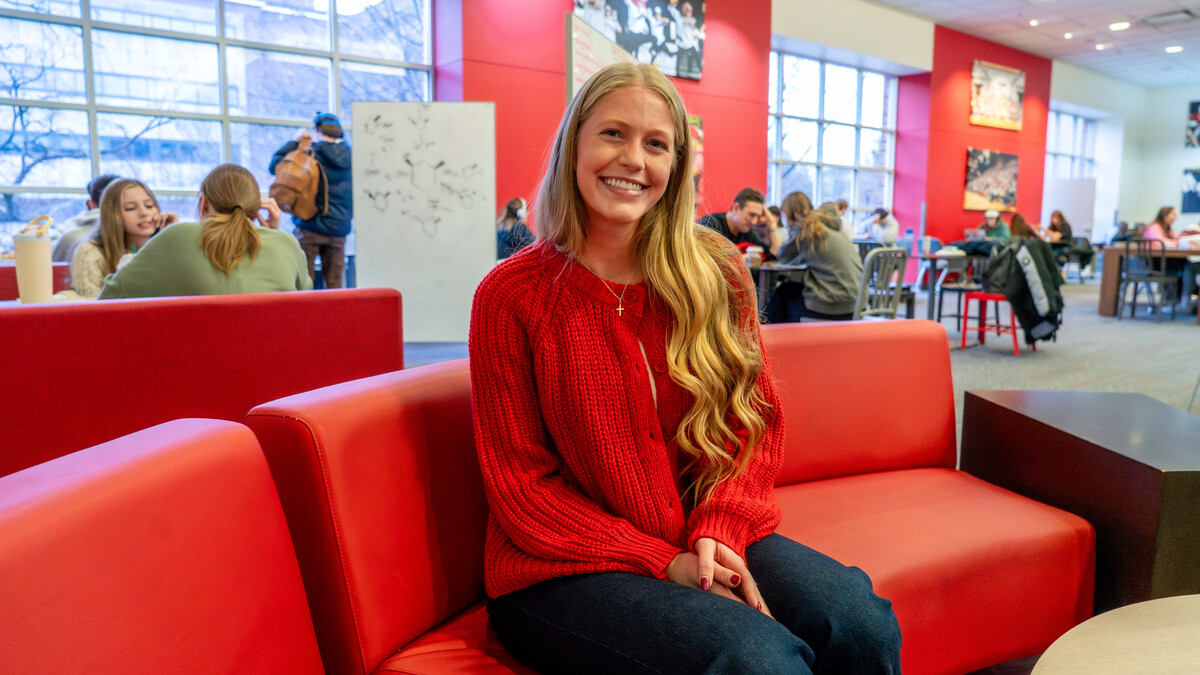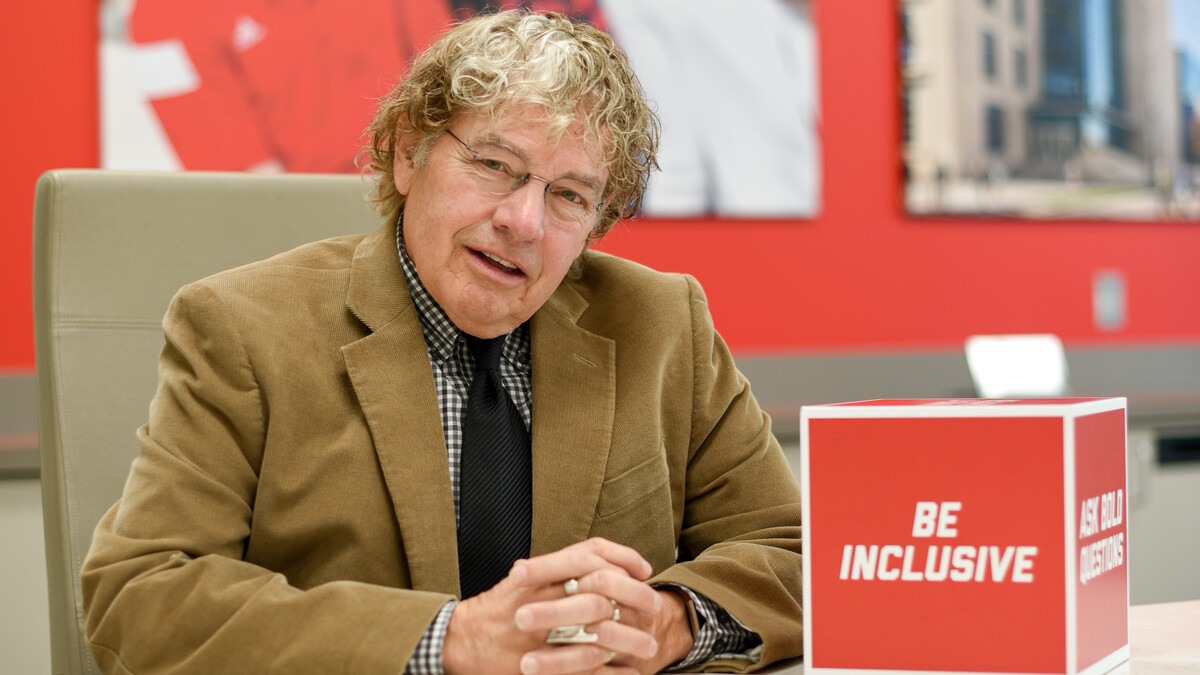
With a swelling heart for animals all her life, Asya Macon knew being a veterinarian would be the perfect career for her. Macon felt that dream dimming as she didn’t see anyone who looked like her.
It was in her first day of her first animal science course at North Carolina Agricultural and Technical State College, a public, historically black land-grant college, that Macon saw Dr. Andrea Gentry-Apple – the first African American veterinarian she had seen in her 18 years. Her dream reignited with the idea that she could be the next Gentry-Apple.
She explored this dream by completing a large animal veterinary externship with Dr. Sarah Blackwell in summer 2018. Blackwell, an African American veterinarian who owns her own mobile clinic called Ark Veterinary Services, LLC, became a mentor and source of fuel for Macon’s desire to become a veterinarian.
“She is like a big sister to me,” Macon said.
Macon was not prepared for the next offer that would change the course of her career and education plans. In the summer before her senior year, Macon was presenting her research findings at the American Society of Agricultural and Biological Engineers Conference when she was approached by Tami Brown-Brandl, professor and Splinter Chair of biological systems engineering at the University of Nebraska–Lincoln. After discussing Macon’s research, goals and post-graduation plans, Brown-Brandl extended an offer for a graduate research assistantship at Nebraska. After much consideration and many conversations with Brown-Brandl throughout her senior year, Macon accepted.
At Nebraska, Macon, a graduate student in mechanized systems management with a minor in animal science, has dug into precision animal management research. Her research uses technology to detect and manage the health of sows through their activity in the first week of lactation. To do this, Macon and her team are using 3-D wearable accelerometer sensors on three sows in three different farrowing crate layouts. These sensors measure the time the sows spend moving around versus staying in one position. The ultimate goal is to determine whether the technology would be useful for the future of swine production.
In addition to her research, Macon serves as the president of the university’s Biological Systems Engineering Graduate Student Association. She has organized community service events, informational sessions, personal emails and notes to check in on students and has helped improve members’ academic and professional careers.
“My main goal of BSE GSA is I wanted to give back to the community of Lincoln,” Macon said. “I wanted to bring a community of graduate students together and let them know that you are not alone.”
Macon also serves as co-host of the FarmBits Podcast. The podcast focuses on digital agriculture technologies and features interviews with academic experts, farmers and industry specialists. Here, she is excited to head a new series on diversity in agriculture.
“There’s so much to diversity, and I just wanted to bring a different face, different ideas in,” Macon said. “Let’s change what’s going on, because I think it’s time.”
Coming to a predominantly white institution from a historically black college, Macon needed some time to adjust. When she first got to Nebraska, she didn’t know what to expect but remained open-minded.
“Everyone wants to see me do well, and I appreciate that, especially being the only African American person in the whole department,” said Macon, who is also a first-generation college student.
Being a first-generation student isn’t easy for everyone, but Macon’s parents put a high value on education growing up. Her mom wanted her children to have what she didn’t, Macon said.
“They’re really proud of me, and I’m doing all this to make my family proud and set a good example for my siblings.”
The university provided the backdrop for Macon’s personal growth to be an example for others and helped her gain confidence.
“It helped me to gain a voice and not be afraid to speak about what I believe in, because at first I was very scared,” she said.
As she prepares to graduate with her master’s degree in May, Macon is looking onward to veterinary school. She is looking to attend the Virginia-Maryland College of Veterinary Medicine or North Carolina State College of Veterinary Medicine, which is 25 minutes from her home. Wherever she ends up, Macon holds onto the dream to be a small and large animal veterinarian, with the hopes of owning her own clinic someday.
“I want to set an example. I want to be an additional representation of the 2% of Black veterinarians,” Macon said. “I didn’t have anybody to look up to, so when a little Black girl sees me, she will know that she is not alone and that it is possible.”







